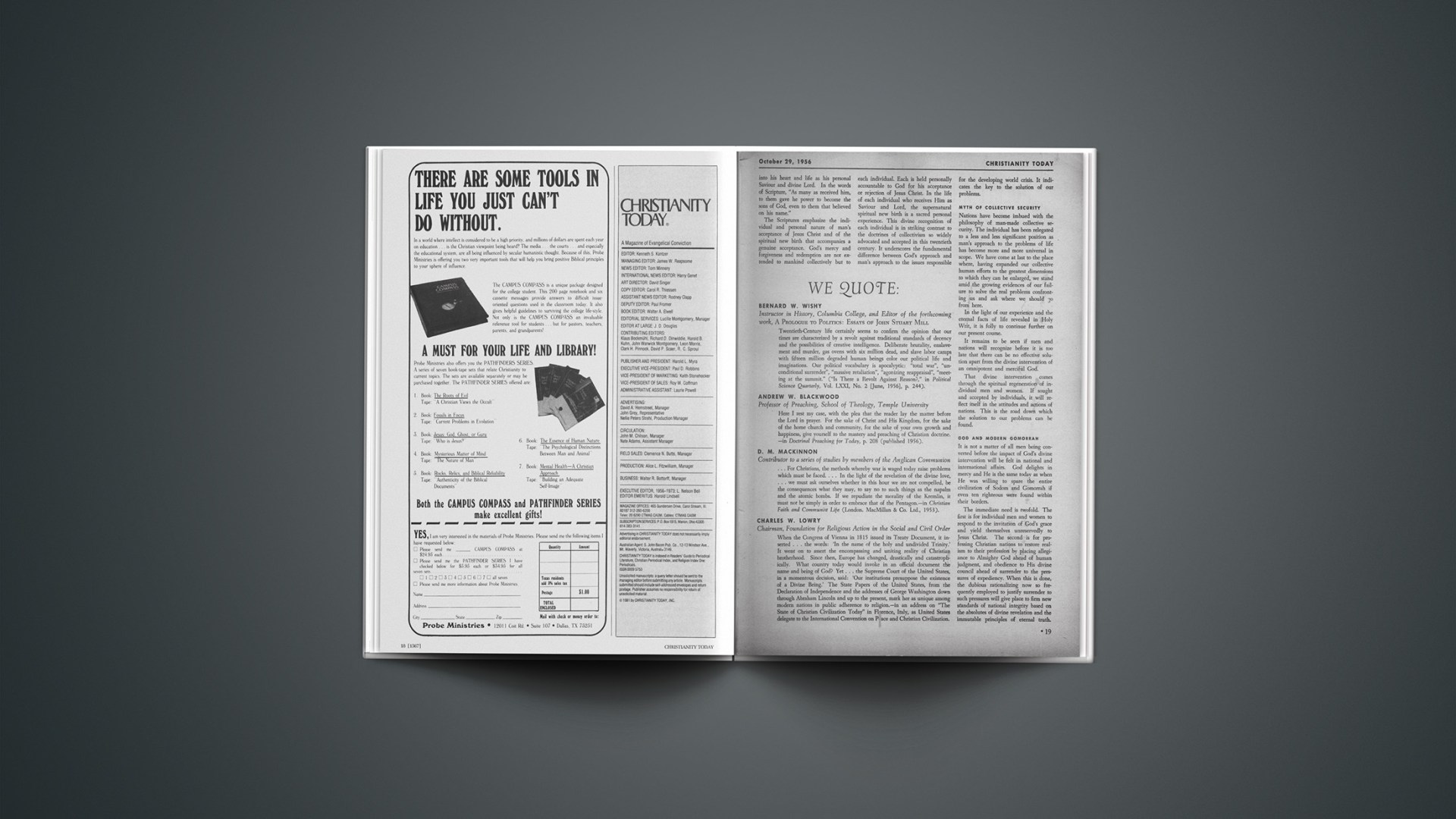BERNARD W. WISHY
Instructor in History, Columbia College, and Editor of the forthcoming work, A PROLOGUE TO POLITICS ESSAYS OF JOHN STUART MILL
Twentieth-Century life certainly seems to confirm the opinion that our times are characterized by a revolt against traditional standards of decency and the possibilities of creative intelligence. Deliberate brutality, enslavement and murder, gas ovens with six million dead, and slave labor camps with fifteen million degraded human beings color our political life and imaginations. Our political vocabulary is apocalyptic: “total war”, “unconditional surrender”, “massive retaliation”, “agonizing reappraisal”, “meeting at the summit.” (“Is There a Revolt Against Reason?,” in Political Science Quarterly, Vol. LXXI, No. 2 [June, 1956], p. 244).
ANDREW W. BLACKWOOD
Professor of Preaching, School of Theology, Temple University
Here I rest my case, with the plea that the reader lay the matter before the Lord in prayer. For the sake of Christ and His Kingdom, for the sake of the home church and community, for the sake of your own growth and happiness, give yourself to the mastery and preaching of Christian doctrine.—in Doctrinal Preaching for Today, p. 208 (published 1956).
D. M. MACKINNON
Contributor to a series of studies by members of the Anglican Communion
… For Christians, the methods whereby war is waged today raise problems which must be faced.… In the light of the revelation of the divine love, … we must ask ourselves whether in this hour we are not compelled, be the consequences what they may, to say no to such things as the napalm and the atomic bombs. If we repudiate the morality of the Kremlin, it must not be simply in order to embrace that of the Pentagon.—in Christian Faith and Communist Life (London, MacMillan & Co. Ltd., 1953).
CHARLES W. LOWRY
Chairman, Foundation for Religious Action in the Social and Civil Order
When the Congress of Vienna in 1815 issued its Treaty Document, it inserted … the words: ‘In the name of the holy and undivided Trinity.’ It went on to assert the encompassing and uniting reality of Christian brotherhood. Since then, Europe has changed, drastically and catastrophically What country today would invoke in an official document the name and being of God? Yet … the Supreme Court of the United States, in a momentous decision, said: ‘Our institutions presuppose the existence of a Divine Being.’ The State Papers of the United States, from the Declaration of Independence and the addresses of George Washington down through Abraham Lincoln and up to the present, mark her as unique among s modern nations in public adherence to religion.—in an address on “The State of Christian Civilization Today” in Florence, Italy, as United States delegate to the International Convention on Peace and Christian Civilization.










